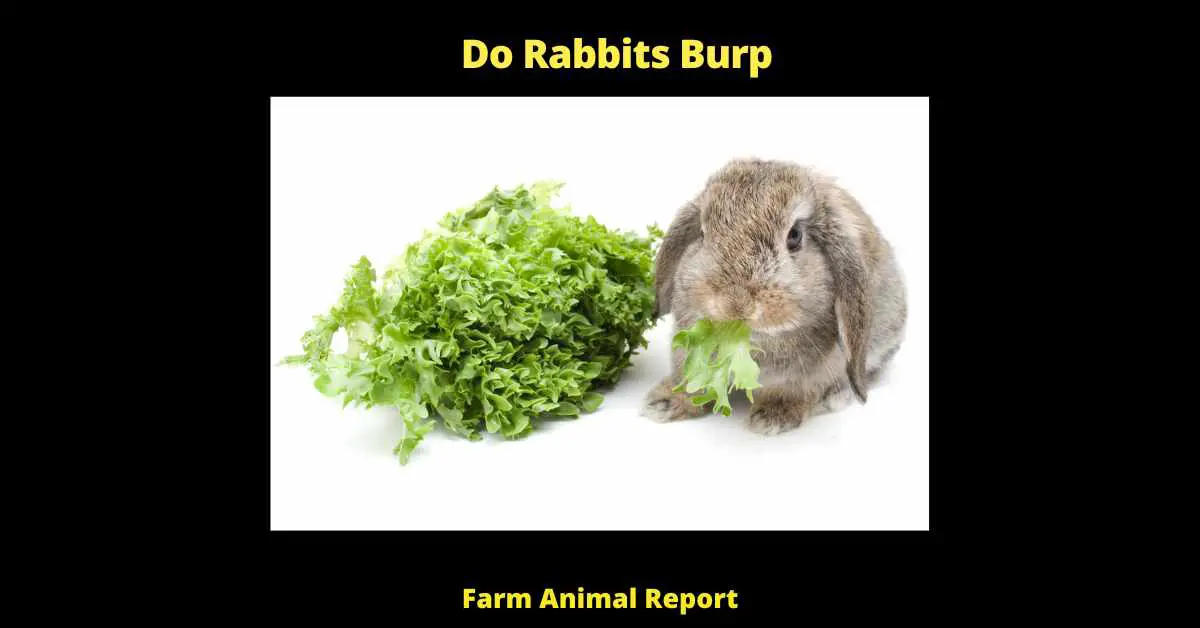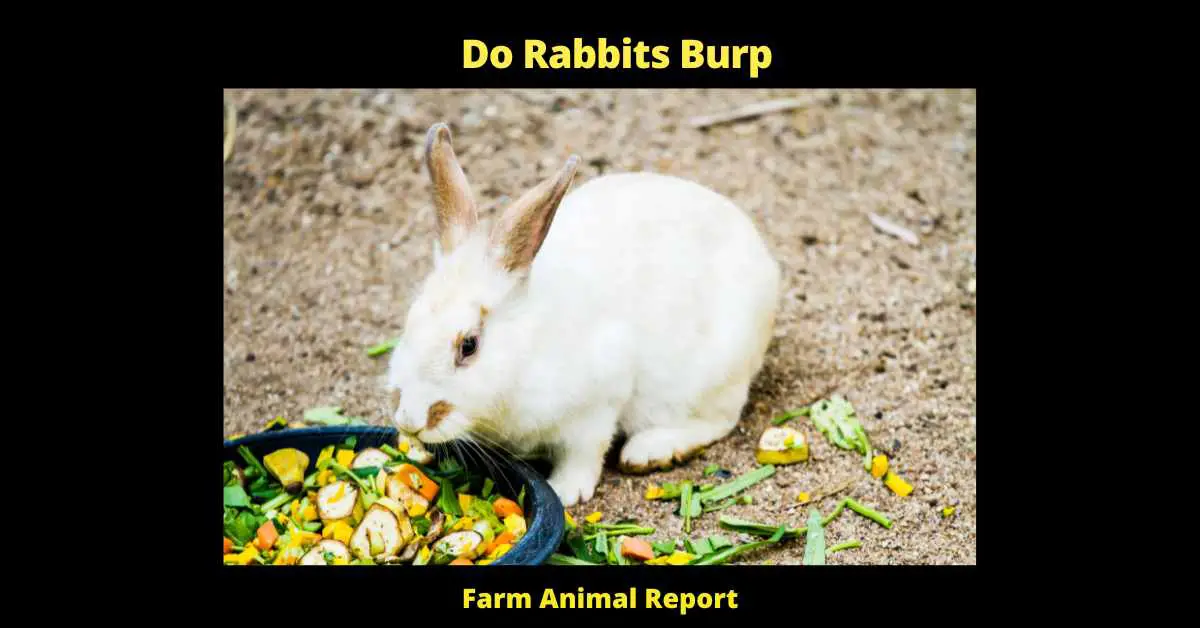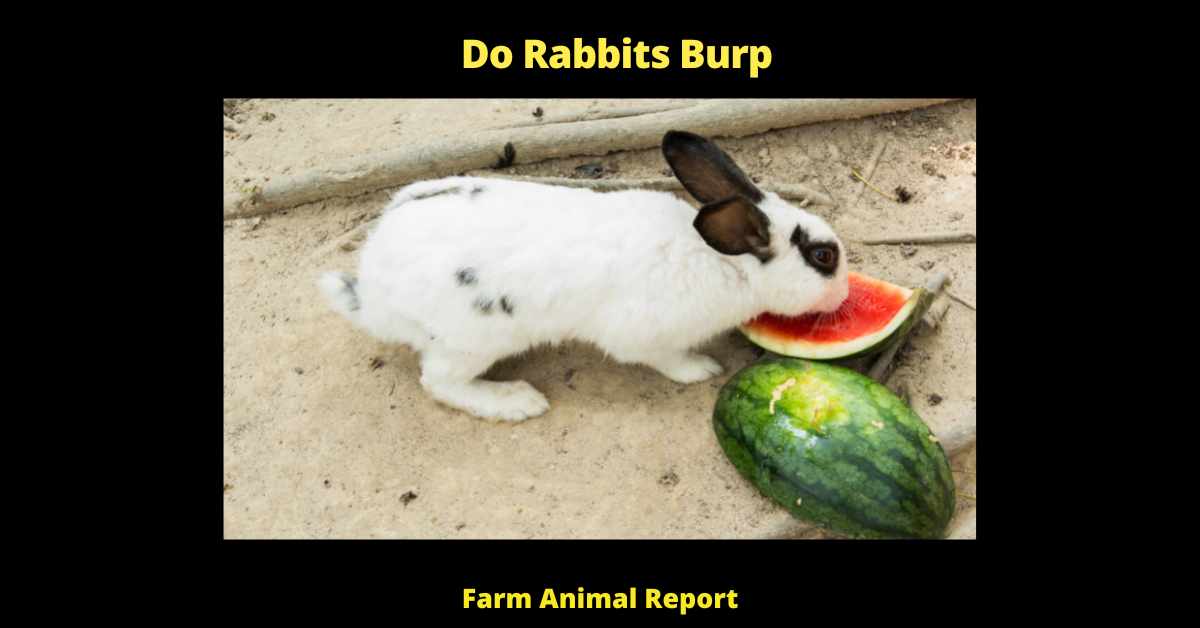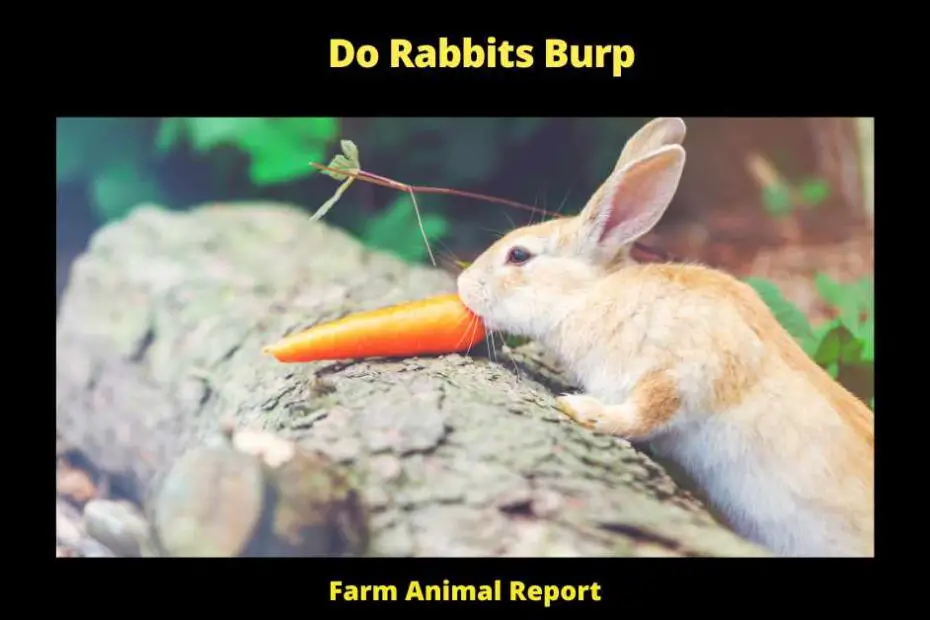Do rabbits burp? No, rabbits are not capable of burping. The reason for this is the same reason why they cannot vomit; their stomach muscles lack the strength to contract forcefully enough to push the gas up the esophagus and out of the mouth.
Rabbits are hindgut fermenters, meaning they digest their food in their large intestines rather than their stomachs. This means that most digestion happens outside of the stomach, reducing the chances of excess air or methane building up and needing to be released.
Do Rabbits Burp
Rabbits do have a digestive system that is more efficient than other animals, allowing them to absorb nutrients and energy from their food more effectively and reducing the amount of air they swallow while eating. This means that rabbits do naturally produce some gas in their intestines, but it will pass out through the rectum without them needing to burp.
How do Rabbits Digest Food? – Hindgut Fermenters
A rabbit’s digestive system is specially designed to extract the maximum amount of nutrients from its food. This is necessary because rabbits need a high-fiber diet to stay healthy. The fiber in their diet helps keep their gut moving and prevents gut stasis, a condition where the gut stops moving and can lead to fatal bloat.

To eat enough fiber, rabbits need to spend most of their time eating. In the wild, rabbits will graze on fresh grasses and other plants for hours every day. Domestic rabbits should have unlimited hay available to them at all times. Hay is an excellent source of fiber and essential nutrients for rabbits.
How Fiber Helps Rabbits Digest Food
A rabbit’s digestive system is specially designed to extract the maximum amount of nutrients from its food. This is necessary because rabbits need a high-fiber diet to stay healthy. The fiber in their diet helps keep their gut moving and prevents gut stasis, a condition where the gut stops moving and can lead to fatal bloat.
To eat enough fiber, rabbits need to spend most of their time eating. In the wild, rabbits will graze on fresh grasses and other plants for hours every day. Domestic rabbits should have unlimited hay available to them at all times. Hay is an excellent source of fiber and essential nutrients for rabbits.
The hindgut ferments the fiber into short-chain fatty acids (SCFAs), which are an important source of energy for rabbits. The SCFAs also help protect the lining of the intestine and support a healthy immune system.
How Does Fermentation Help Rabbits Digest Food?
Rabbits are hindgut fermenters, which means that fermentation takes place in the large intestine and cecum (a small pouch attached to the intestine). The cecum is larger in proportion to the rest of the rabbit’s body than in any other mammal, including humans.
This allows more space for bacteria to break down plant matter into digestible nutrients.
Bacteria play a vital role in a rabbit’s digestive process by breaking down complex carbohydrates, proteins, and fibers that the rabbit’s own enzymes can’t digest.
These indigestible plant fibers are fermented by bacteria in the cecum into SCFAs. The SCFAs are then absorbed through the wall of the intestine into the bloodstream and used as an energy source by cells throughout the body.

Soft Cecotropes and Dry Fecal Pellets
Rabbits produce two types of feces: soft cecotropes and dry fecal pellets. Cecotropes are soft, nutrient-rich droppings that are produced by special cells in the cecum (these are different from the cells that produce SCFAs). Cecotropes contain high levels of vitamin B and other essential nutrients that rabbits need to stay healthy.
Rabbits usually eat their cecotropes immediately after they’re produced (this is why you may sometimes see your rabbit eating their own droppings). Eating cecotropes is essential for good health because it ensures that your rabbit gets all of the nutrients they need from its diet.
Rabbits are specially equipped to extract all of the nutrients they need from their food so that they can stay healthy and active. Their hindgut fermentation system allows them to eat a high-fiber diet without suffering from any health problems. If you have a pet rabbit, make sure they have unlimited hay available so that they can get all of the fiber they need!
What Rabbit Foods can cause gas
Many people believe that a diet consisting mainly of vegetables is the healthiest way to eat. However, what many people don’t realize is that this type of diet can actually be very dangerous for rabbits. A diet high in vegetables can cause gas and bloating in rabbits, and can even lead to death.
Rabbits are strictly herbivorous animals, which means that their diet consists mainly of plants. In the wild, rabbits eat a variety of different plants, including grasses, herbs, and vegetables. However, when rabbits are kept as pets, their diet is often limited to just a few types of vegetables. This can cause problems because it doesn’t provide the rabbit with all of the nutrients they need.
One of the biggest problems with a vegetable-based diet is gas. Gas forms when bacteria in the gut ferment carbohydrates that the rabbit can’t digest. This fermentation process produces methane and carbon dioxide, which can cause bloating, pain, and even death in rabbits.
1. Cauliflower
Cauliflower is a healthy vegetable that’s packed with nutrients like fiber, vitamins, and minerals. However, it’s also high in sulfur, which can lead to an increase in gas production. If you do feed your rabbit cauliflower, do so sparingly and make sure to monitor their gas output closely.
2. Beans
Beans are another healthy food that’s often recommended for rabbits. They’re an excellent source of protein and fiber, but they can also cause gas. In particular, lima beans and soybeans are two of the worst offenders. If you decide to feed your rabbit beans, give them just a small amount at first to see how they tolerate them.
3. Broccoli
Broccoli is yet another healthy vegetable that’s often given to rabbits. Like cauliflower, broccoli is high in sulfur, which can lead to increased gas production. Broccoli is also a bit tougher to digest than other vegetables, so it may take your rabbit longer to process it properly. If you do make the decision to feed your rabbit broccoli, do so in moderation and keep an eye on their gas output.

Do Rabbits Fart
We all know that rabbits are cute and cuddly. They make great pets. But one question that people often ask about rabbits is “Do they fart?” The answer is yes, rabbits do fart. However, they cannot burp, so any accumulation of gas passes through their system. This is why it’s important to ensure that your rabbit’s diet is high in fiber to help them stay regular.
Why Do Rabbits Fart?
There are two main reasons why rabbits fart. The first reason is due to their diet. Rabbits are mostly herbivores and their diet consists mostly of hay, vegetables, and pellets. This type of diet leads to a lot of gas because rabbits can’t properly digest all the fiber they’re consuming. The second reason rabbits fart is due to their anatomy. Their digestive systems are much shorter than ours, which means food moves through them much faster. This also leads to a lot of gas being produced.
What do Rabbit Farts Smell Like?
Rabbit farts don’t usually smell too bad. After all, most of what they’re eating is vegetation, which doesn’t have a strong odor. However, if your rabbit isn’t getting enough fiber in their diet or if they’re eating something they shouldn’t be (like chocolate), then their farts might smell a bit more pungent than usual.
Rabbits are adorable creatures that make great pets. And while we all love them, there’s one thing about them that we often wonder about: Do they fart? The answer is yes! But because they cannot burp, any accumulation of gas passes right through their system. So, if you notice your bunny friend letting off a few extra smelly farts, make sure they’re getting enough fiber in their diet!
Final Thoughts – Can Rabbits Burp
In short, rabbits cannot burp due to their digestive system and lack of abdominal strength, but they still produce some gas that is released naturally. So, if you ever happen to hear a strange noise coming from your pet rabbit, it’s not likely to be a burp!
God Bless Greg





